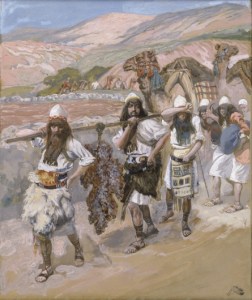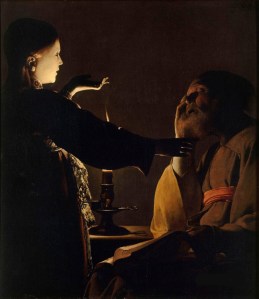Numbers 14:39-45: This Cannot Succeed
Thursday, March 5, 2026
![2350439562_985b375cb3[1]](https://thenoontimes.com/wp-content/uploads/2012/03/2350439562_985b375cb31.jpg?w=271&h=181)
Lent is a time for re-thinking and re-aligning. It is a time of sorting and organizing. It is a time of turning and returning. God awaits each of us with open arms and full heart; we can always expect a welcome from God. The first steps of the going home again are ours to take; but first we must heed God’s voice when it says to us: This cannot succeed.
And so we pray Psalm 51: The Miserere. It is believed that this psalm was written by David when his illicit relationship with Bathsheba was brought to light. (2 Samuel 11 and 12) We pray today, asking forgiveness for the most recent time that we have gone astray.
Have mercy on me, God, in your goodness; in your abundant compassion blot out my offense.
It is not our intention to go against your suggestions – we just have a way of thinking that we know our lives better than you do.
Wash away my guilt; from my sin cleanse me.
We do not set out to wander away from your guiding hand – the circumstances of our lives influence us more than you do.
Have mercy on me, God, in your goodness; in your abundant compassion blot out my offense.
It is not our aim to put ourselves above you or to pretend that we have better judgment than you – rather it is that we find the influence of our friends to be greater than our awareness of you.
Wash away my guilt; from my sin cleanse me.
It is not that we disbelieve you so much as we succomb to our own fear.
Have mercy on me, God, in your goodness; in your abundant compassion blot out my offense.
It is not that we do not love you enough – rather it is just that we have difficulty trusting your wisdom.
Wash away my guilt; from my sin cleanse me.
When we are calm and away from anything that might threaten us we are able to have a clear understanding of how much you love us.
Have mercy on me, God, in your goodness; in your abundant compassion blot out my offense.
Help us to remain in you, guide us in hoping in you, bring us back from Hormah. Bring us back to loving you.
Wash away my guilt; from my sin cleanse me.
We ask this in Jesus’ name. Amen.
A re-post from March 14, 2012.
For more photos taken near Hormah, click the image above or go to: http://www.openbible.info/geo/photos/hormah

![wealth1_small[1]](https://thenoontimes.com/wp-content/uploads/2012/03/wealth1_small1.jpg?w=279&h=199)
![cleanseTempleElGreco.1591[1]](https://thenoontimes.com/wp-content/uploads/2012/03/cleansetempleelgreco-15911.jpg?w=207&h=179)
![untitled[1]](https://thenoontimes.com/wp-content/uploads/2012/03/untitled1.jpg?w=210&h=252)
![dsendabner[1]](https://thenoontimes.com/wp-content/uploads/2012/03/dsendabner12.jpg?w=184&h=276)
![JacobWillemszdeWetdAsm[1]](https://thenoontimes.com/wp-content/uploads/2011/12/jacobwillemszdewetdasm11.jpg?w=284&h=188)
![HEART%20LOU[1]](https://thenoontimes.com/wp-content/uploads/2011/12/heart20lou12.jpg?w=205&h=205)
![jesus-7[1]](https://thenoontimes.com/wp-content/uploads/2011/12/jesus-71.jpg?w=277&h=209)
![1977_Jesus_of_Naz_synagogue[1]](https://thenoontimes.com/wp-content/uploads/2011/12/1977_jesus_of_naz_synagogue11.jpg?w=283&h=160)
![TEXT-breastplate-sm[1]](https://thenoontimes.com/wp-content/uploads/2011/12/text-breastplate-sm1.jpg?w=276&h=197)
![1_sam_1_samuel_brougth_to_eli[1]](https://thenoontimes.com/wp-content/uploads/2011/12/1_sam_1_samuel_brougth_to_eli1.jpg?w=186&h=269)

